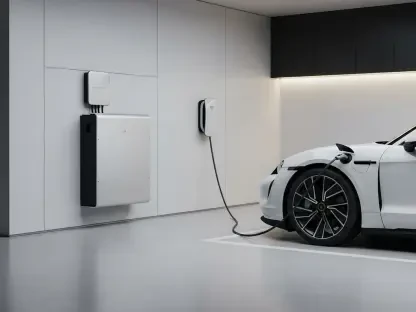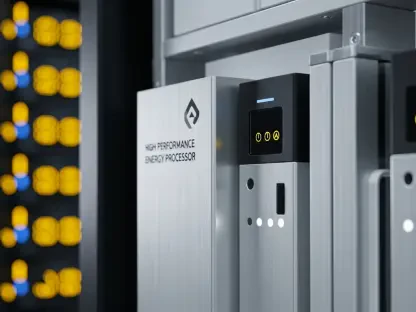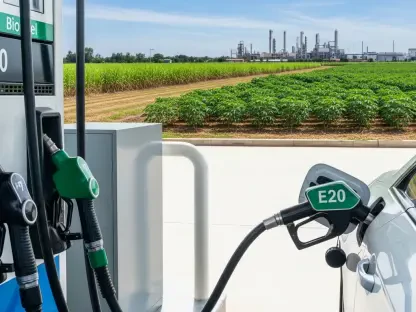The anticipated clash between California and the incoming Trump administration over environmental policies is heating up, particularly in the realm of electric vehicle (EV) tax credits. President-elect Donald Trump has expressed his intention to eliminate the federal tax credit for electric vehicle purchases, which currently stands at $7,500 under the 2022 Inflation Reduction Act (IRA). In response, California Governor Gavin Newsom has pledged to counteract this move with state-level rebates to support residents who purchase zero-emission vehicles. This tug-of-war reflects deeper ideological differences on climate policy and regulatory approaches, setting the stage for a potential showdown that could significantly impact the future of EV adoption in the United States.
California’s Commitment to Clean Transportation
Governor Newsom’s stance underscores California’s unwavering commitment to clean transportation, clean air, and green jobs. He has made it clear that the state will not retreat from its goals of promoting EV adoption, regardless of potential federal rollbacks. To this end, Newsom promises to reinstate a state rebate program, previously active from 2010 to 2023, which contributed to funding over 594,000 vehicles and saving more than 450 million gallons of fuel. This program is pivotal for maintaining the state’s lead in EV adoption, particularly given California’s history of stringent auto emissions standards, which have frequently been more demanding than federal ones. Newsom’s proactive measures aim to sustain this momentum, encouraging more residents to adopt zero-emission vehicles despite potential federal pushback.
The significance of this program cannot be overstated, especially in a state that has long been a pioneer in environmental initiatives. California’s commitment to clean transportation is rooted in its broader environmental objectives, which include improving air quality and reducing greenhouse gas emissions. By reinstating the state rebate program, Newsom is not only supporting the growth of the EV market but also reinforcing California’s leadership in the fight against climate change. The state’s resolve to continue funding incentives for EV purchases sends a strong message about its dedication to both environmental sustainability and economic innovation.
Historical Context of Environmental Policy Disputes
The deeper context lies in the broader environmental policy disputes between California and the Trump administration. During Trump’s first term, California sued the federal government over 120 times, reflecting a deep-seated conflict over various issues, including immigration and environmental regulations. With Trump’s renewed efforts to curb California’s regulatory autonomy, these tensions are expected to escalate. Trump’s inability to unilaterally abolish the EV tax credit due to its entrenchment in the IRA means that any such change would require Congressional action. The IRA stipulates rebates of $7,500 for new electric, fuel-cell, or plug-in hybrid vehicles, and $4,000 for used ones, subject to certain restrictions like income limits.
The potential removal of these credits poses a significant threat to the growth of EV sales and, by extension, to the fossil fuel industry, which has been a staunch supporter of Trump’s campaign. Historically, California has been at the forefront of environmental policy, often setting standards that are later adopted nationwide. The state’s rigorous auto emissions regulations and ambitious climate goals have positioned it as a leader in the transition to clean energy. The ongoing disputes with the federal government highlight the broader ideological divide between California’s progressive environmental policies and the Trump administration’s deregulatory agenda.
Impact on Consumers and the Market
For consumers like Christopher Bowe, a FedEx senior manager who leveraged both federal and state credits to buy his first EV in 2022, the loss of the federal tax rebate would be a significant financial setback. The importance of these credits is underscored by the price discrepancy between EVs and gas-powered vehicles, with the former averaging $56,902 and the latter $48,623 as of October. Should the federal credits be abolished, Newsom’s proposed reinstatement of the California rebate program would need legislative approval. This program, guided by the California Air Resources Board, might exclude some car manufacturers, including Tesla, to foster market competition and innovation. Tesla already occupies a significant share of California’s EV market.
The potential financial impact on consumers and the market cannot be overlooked. The federal tax credits have played a critical role in making EVs more affordable and accessible to a broader range of consumers. Without these incentives, the cost barrier for purchasing EVs would become more pronounced, potentially slowing down the adoption rate. Newsom’s plan to reinstate state rebates aims to mitigate this risk by continuing to provide financial incentives for Californians to choose zero-emission vehicles. By ensuring that state-level rebates remain available, California can help bridge the gap left by the potential elimination of federal credits and maintain its leadership in the EV market.
California’s Leadership in EV Adoption
The anticipated confrontation between California and the incoming Trump administration over environmental policies is intensifying, especially concerning electric vehicle (EV) tax credits. President-elect Donald Trump has declared his intention to abolish the federal tax credit for electric vehicle purchases, which currently offers $7,500 under the 2022 Inflation Reduction Act (IRA). In response, California Governor Gavin Newsom has vowed to counteract this potential federal change by introducing state-level rebates to encourage residents to buy zero-emission vehicles. This battle highlights the fundamental ideological divide between the two sides on climate policy and regulatory strategies. The pending conflict could profoundly influence the future of EV adoption in the United States and reveal the broader implications of differing environmental agendas. This disagreement underscores the ongoing tension between state and federal approaches to climate action and sustainable transportation initiatives, setting the stage for a significant policy showdown.









